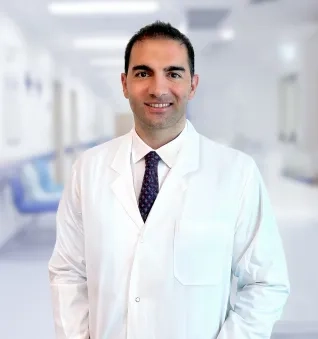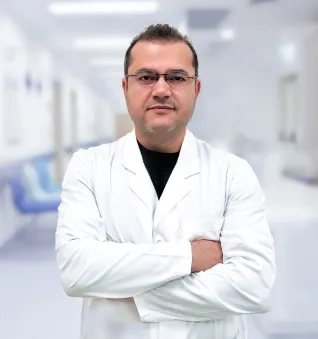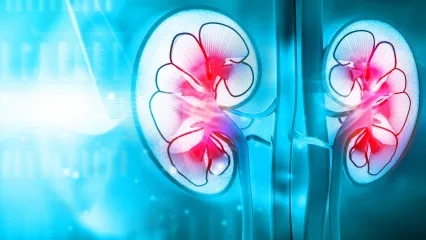The primary consideration in the evaluation between the kidney recipient and the kidney donor is blood group compatibility. If you can donate blood to a person, you can also donate the kidney. Rh group has no importance in kidney transplantation. That is, an Rh-negative person can give the kidney to an Rh-positive person or vice versa. In the absence of blood group compatibility, cross-over transplantation is brought to agenda. This transplant is based on the kidney exchange principle of at least two pairs
The blood group compatibility principle is shown in the table below.
| Donor | Recepient |
| A | A veya AB |
| B | B veya AB |
| 0 | A,B,AB veya 0 |
| AB | AB |
- AB blood group can receive kidney from all blood groups.
- The 0 (zero) group can donate kidney to all blood groups.
In Case of Tissue Incompatibility
It is important whether there is tissue incompatibility rather than tissue compatibility. The tissue groups of the kidney from the donor differ from the recipient, except that the recipient and the donor are identical twins. In the case of kidney transplantation from the mother and father to their children, there is often fifty-fifty tissue similarity. In the case of transplantation between the unrelated husband and wife, no tissue similarity is frequently observed. However, kidney transplantation can be successfully performed. The main determinant is whether there is a pre-developed defense against the tissues of the kidney to be transplanted. The tests inspect whether there is an incompatibility in this sense. Evaluating the results of these tests as “eligible for kidney transplantation”; means that after the kidney received from the donor is transplanted to the recipient at the surgery, there will be no obstacle to the operation of the kidney in terms of the immune system when the vessels are opened.
In the period after the operation is performed, lifetime drug treatment is applied for that the patient does not realize that the kidney transplanted to him belongs to a different person and does not reject the organ. This treatment, which is called immunosuppressive therapy, is applied a little more intensively in the early postoperative period, and after the first 3 months, on the other hand, applied by decreasing the doses and numbers. However, it is a life-long treatment. The fact that the recipient or donor has viral hepatitis is not an absolute obstacle to transplant. Transplant can be performed by performing the necessary checkups, tests and protection treatments.
How Long Is The Lifespan Of The Transplanted Kidney?
In the literature, there are transplanted kidneys that have worked for more than 30 years, as well as there are patients who lost their kidneys in the first year after transplantation. Success rates reported after living donor kidney transplantation are in the range of 93-98%. Due to the high success rates, “kidney transplantation” has become the gold standard treatment. However, it should not be forgotten that, in the end, kidney transplant is a treatment method. Therefore, it is not a treatment that promises 100% success. There are many factors that determine success. Many factors such as the patient's general health status, social habits (smoking, alcohol), experience of the team that will perform the treatment, taking patients' post-treatment medications punctually according to the recommendations of his/her doctors, compliance with the outpatient clinic controls, affect result.
Renal rejection can occur when a patient, who has had a long period after kidney transplantation without any problems, discontinues their medication without consulting their doctor. Therefore, it is explained in detail that a candidate for kidney transplant will use medication after the transplant and come to regular outpatient clinic checkups.
What Happens In Case Of Organ Rejection?
It is possible for the body to try to reject the organ even when patients and physicians apply everything appropriately. In terms of early detection of this condition, outpatient clinic controls are extremely important. In the patient education, the situations and complaints that may occur besides the outpatient clinic controls are explained and it is ensured that they apply to their doctors in possible cases. In these cases, the patient is hospitalized and treatment for organ rejection is applied. Most patients with organ rejection respond to treatment. Meanwhile, it may be necessary to perform a biopsy of the transplanted kidney. The treatment to be given is determined according to the result of biopsy, which is the method that most clearly determine organ rejection. In some patients, a biopsy is performed for the purpose of post-treatment control. In this way, the effectiveness of the treatment is evaluated.
The experience obtained so far shows that, kidney transplantation in eligible patients gives patients both freedom and high quality of life compared to hemodialysis or peritoneal dialysis. In order to make the risk assessment correctly, it is necessary to evaluate the risks of dialysis methods, which is an alternative to kidney transplantation. While dialysis treatments are the only alternative for patients who are not able to have a kidney transplant, kidney transplant is the gold standard treatment for all other patients.
How Long Does It Take to Prepare For Kidney Transplant?
The duration of the transplant may vary depending on the examination and workup results of the kidney recipient and donor candidates. Preparations can be completed in 3-4 business days unless there are associated diseases or findings requiring further investigation. Kidney transplantation is not a treatment completed by surgery. It starts with surgery and continues for life. Therefore, the process until the preparations are completed may differ from person to person. Because, the goal is to achieve the highest success rate, especially in living donor kidney transplantation.
Who Can Be A Kidney Donor?
Anyone who is 18 years or older, who can make a decision about his own body, and who is in good mental health, can be an organ donor. When evaluating the kidney donor at Yeditepe University Kidney Transplant Center, the examination processes are preferably started with the people who are volunteers in the family as much as possible at an older age. On the other hand, the cases where the volunteer kidney donor is only one are evaluated in line with the patient's condition. In the kidney donor age assessment, serious differences can be observed between bone age and biological age. Sometimes a 70-year-old person who has taken good care of himself/ herself and avoided harmful social habits can be a more ideal candidate than a young person. Therefore, the decisive factor is the donor's overall health. Healthy people can donate one kidney.
When Is Hospitalization Made For Surgery?
Except special cases, hospitalization is made on the day before the surgery. Oral feeding ceases after midnight. Immunosuppressive therapy is initiated at night before the surgery. Relatives of the patient who is hospitalized for kidney transplant, should know that there is no standard patient visit process in this period. Before hospitalization, it is extremely important to inform the patients' relatives that they can increase the risk of infection. Even if you come to the hospital, you are not allowed to enter the patient room in any way.
What Happens During the Operation Process?
On the morning of the operation, the kidney donor and then the kidney recipient are taken under an operation. After the patients leave the room, they are transferred to the operating room. All files are reviewed and checked by the anesthesia team and patients are put to sleep following the necessary preparations. The patient with kidney transplant stays overnight in intensive care. The patient is awake, kept in intensive care for close follow-up only. The next morning, after evaluating and examining all the results, he is taken to the ward.
The kidney donor is operated with a closed method. After the surgery, you are directed to the ward as soon as it is appropriate by the anesthesia team.
On the evening of the surgery, the nurse get you out of bed for the first walk, breathing exercise is started. Kidney donors in 2-3 days, and kidney recipients in about 7 days are discharged after being hospitalized.
One week after the kidney donor is discharged, he is inveted for a check up. The control schedule which will be applied next is planned. There is no need for kidney donors to use regular medications after surgery. They can return to their work. They do not have bans on their diet, provided they stay within the limits of healthy eating rules.
Medicine training is started for kidney recipients from the second day. The training provided during the pre-discharge hospitalization is reviewed by the organ transplant coordinator in full details and completed.
What Kind Of Treatment Method Is Cross-Over Transplant?
When kidney transplantation cannot be implemented between the recipient and the donor due to blood type or tissue incompatibility, it is the replacement of the kidney with a couple experiencing similar problems. The donor and recipient surgeries performed and the treatment applied are the same. It is only a donor replacement at issue. Therefore, the ages of kidney donors should be close to each other in cross-over transplantation.
Who Is In The Organ Transplant Team?
Organ transplantation can be performed in full-fledged hospitals built for this purpose. At the center of the team; there are physician in charge of the organ transplant center, organ and tissue transplant coordinator, kidney transplant physician, liver transplant physician, assistant surgeon, cardiologist, pulmonologist, anesthesiologist, intensive care physician, gastroenterologist, nephrologist, psychiatrist, physiotherapist, dietician, transplant nurse.
What Should The Discharged Patients Pay Attention To In Their Homes?
Patients with kidney transplants often show extreme sensitivity to having the house cleaned for fear of infection. The source of infection is often our hands. Making the house sterile is both impossible and unnecessary. It is enough avoiding close contact with someone with an easy infectious viral disease such as flu and cold at home, good ventilation of the house, proper hand cleaning after toilet use, separation of towels, and use of liquid soap. The use of masks is only useful in crowded environments that are not well ventilated. There is no need to use masks outdoors. There is no harm for the patient in having dinner and watching television with his/her family at his/her home after being discharged. Exercises with light walks are recommended as long as the weather permits. It is not recommended to drive a car alone for the first month after being discharge. In outpatient clinic checkups, daily life activities are planned within the knowledge of your doctor. A 3-month report is issued to kidney recipient patients after being discharge. After 3 months, they are allowed to start work according to the patient's condition.
Our goal with kidney transplantation is to bring our patients to their work and productivity.
What Should Be Considered About Nutrition?
- Some foods, “notably grapefruit”, that affect drugs in nutrition after kidney transplant are strictly prohibited. Because it can cause a significant increase in blood level of the used immunosuppressive drug.
- Herbal mixture teas made in seller of medicinal herbs may not be recommended in terms of their unknown effects since they can contain many different plants. Mediterranean cuisine with olive oil is recommended within the limits of healthy eating.
- There may be a significant increase in appetite due to the normalisation of creatinine values, and used cortisol drug. Therefore, it is necessary to pay attention to nutrition without being deceived to appetite. It should be noted that weight gain can invite additional health problems. It is necessary to avoid sugared foods, pastries and salt. Salad consumption is the most beneficial eating habit. However, it is extremely important to wash the salad ingredients well and use them after soaking in vinegar. Food products sold outside should not be consumed.
Can Public Transport be used?
After transplantation, very crowded public transport vehicles such as Metrobus, poorly ventilated environments are not suitable in terms of infectious diseases that can be infected through the respiratory tract. For some reason, when entering such a crowded environment, a mask must be used. After leaving these environments, attention should be paid to hand cleaning.





